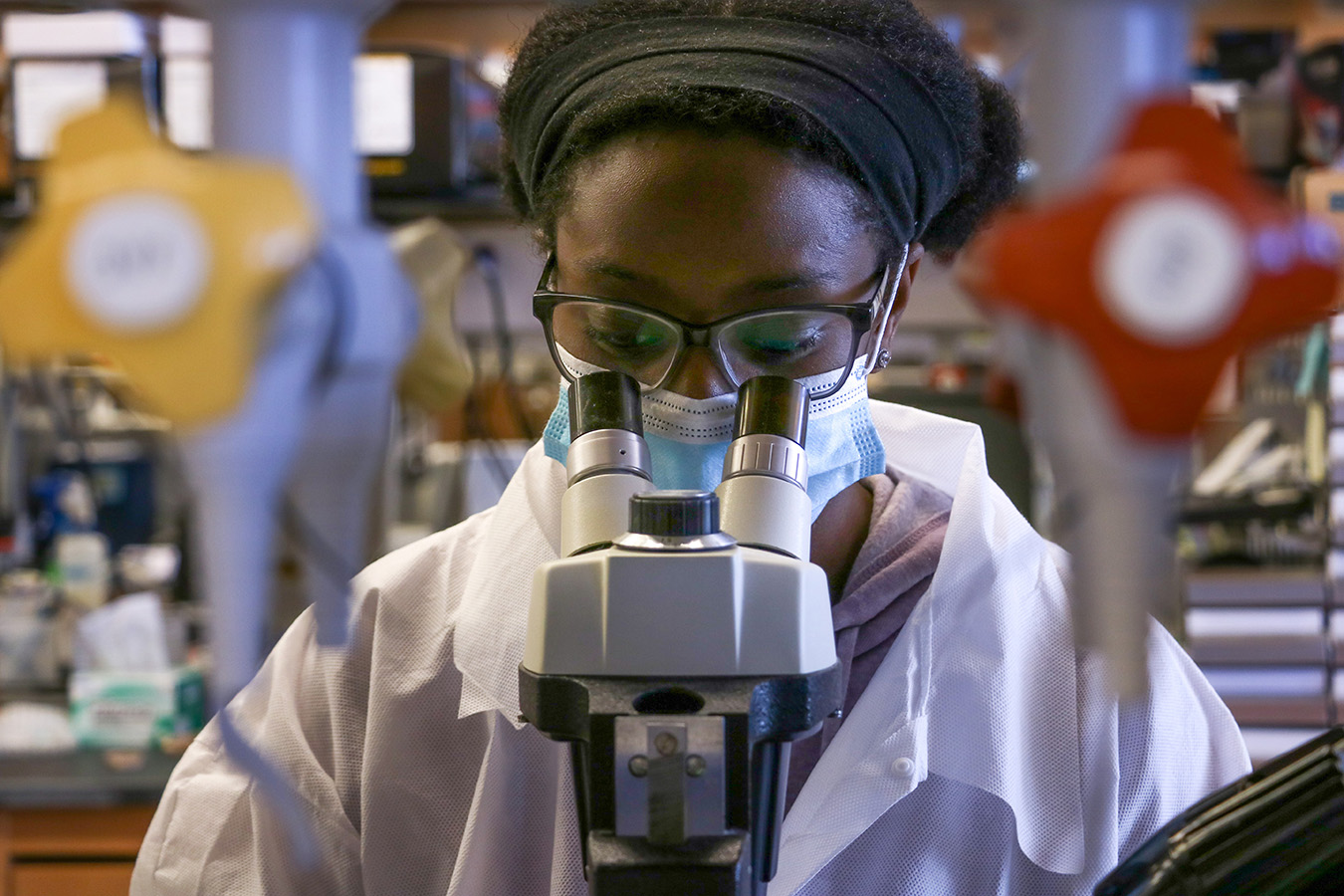
Research Profile: Studying the side effects of antipsychotic medications
November 4, 2021
Where do you conduct your research?
I currently work in the Sullivan lab under Dr. Patrick Sullivan within the UNC School of Medicine’s Department of Genetics.
What research questions does your lab study?
The Sullivan lab works to dissect the genetic composition of complex traits that are of great importance to the general public — particularly focusing on schizophrenia, major depressive disorder, postpartum depression, and anorexia nervosa.
Please tell us a little about your current research project.
My specific project focuses on schizophrenia. Antipsychotics are the main drugs used for the treatment of schizophrenia. Unfortunately, chronic antipsychotic use can result in debilitating side effects. The Sullivan lab has a long track record of work on antipsychotic pharmacogenomics. My project aims to better understand how chronic exposure to antipsychotics impacts gene expression and chromatin organization. I am working as part of a team to expose mice to six antipsychotics (three typical and three atypical), which will be followed by a series of downstream assays to examine transcriptional and epigenetic changes.
How has this experience shaped your future goals?
My experience in the Sullivan lab has not only continued to emphasize the importance of research, contributing to my growing passion and interest in the field, but also has shown me the importance of perseverance in building key scientific skills. Science is meaningful and important to me, and the research I have done has continued to solidify my goal of pursuing a Ph.D. and a research career. My research experiences have helped me build a diverse set of skills, including critical thinking and writing, that I want to continue to expand in graduate school. There is so much knowledge out there to discover, and it is a journey I want to continue in the future. As an African-American woman in STEM, I also strive to be an example for other students who are interested in STEM, but fear pursuing it due to lack of diverse role models.
What has been the most fun or interesting part of your research?
For me, it truly is about the team of people I have been able to work with. They are a friendly, motivating, and supportive group that constantly pushes me to go above and beyond. Having such great mentors has allowed my research experience to be really fulfilling, and I have grown as a scientist and as a person. Also, just knowing that the work I do is contributing to the world of science and eventually will be able to help others is an exciting point for me.
